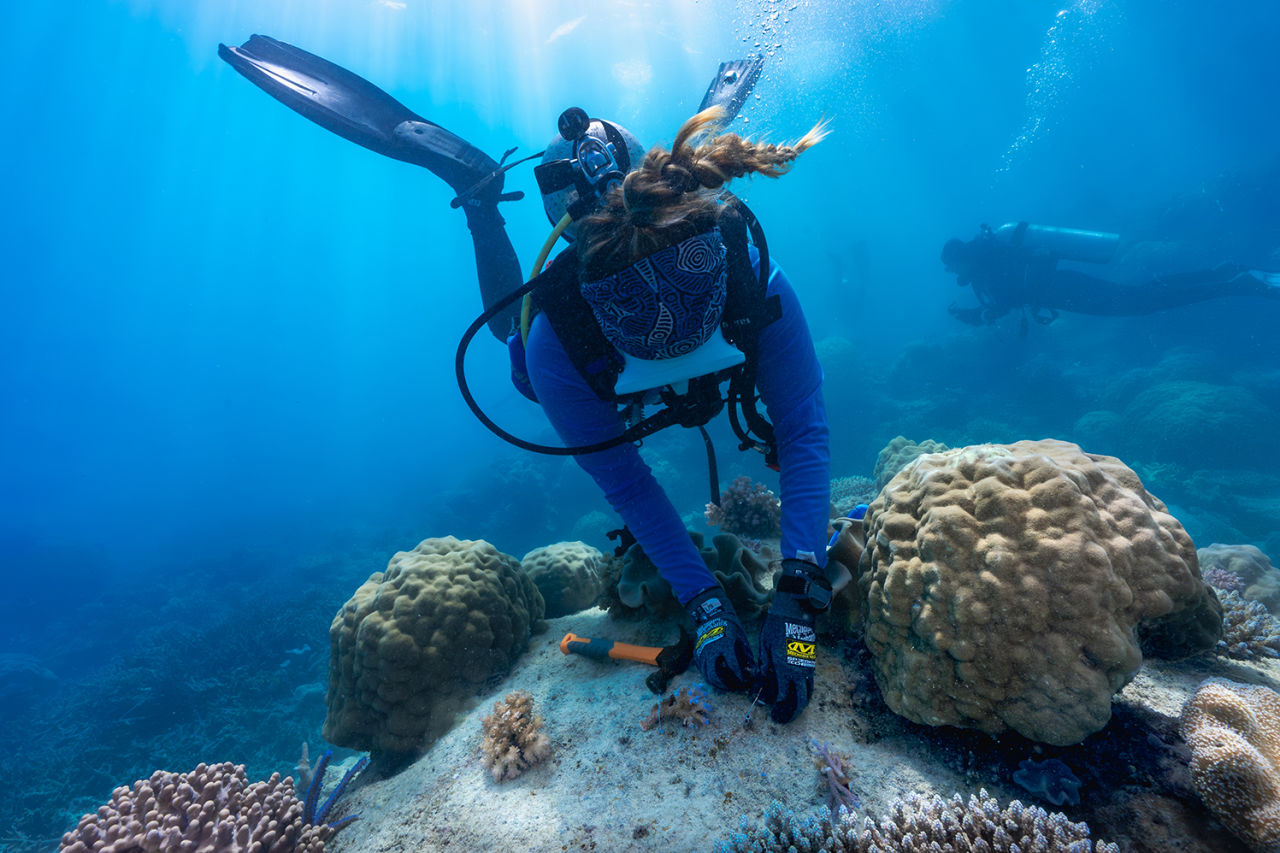The Great Barrier Reef is one of the most complex ecosystems on the planet - it is also one of the most vulnerable. This underwater city, home to thousands of species of marine life, faces an uncertain future as rising temperatures and extreme weather events threaten its delicate balance.
In response to these threats, the Coral Nurture Program is on the front line, combining cutting-edge research with practical conservation techniques to bolster the resilience of these vital ecosystems at a local scale. This program unites scientists from the University of Technology Sydney and nine tourism operators in Cairns, Port Douglas and the Whitsundays to research and refine reef restoration methods at high-value reef sites.
Dr. Paige Strudwick, a postdoctoral researcher with the Coral Nurture Program, emphasises the importance of collaboration in tackling the challenges facing the Reef. "We need this network of tourism operators, stakeholders, and people to mobilise their people power and make meaningful change for the Reef," she explained.
"We have the social benefit where tourism operators and stakeholders are empowered to implement this stewardship at their reef sites - they can protect their patch. We also have the ecological benefits too. We see these degraded sites that we've been able to implement these activities at and they're showing real promise."

Coral Nurture Program unites tourism operators with scientists to bolster the resilience of coral reefs. Credit: Dr. Paige Strudwick.
Using underwater nurseries to propagate coral fragments, the Coral Nurture Program is assisting the recovery of key reef areas. Since its inception in 2018, over 110,000 corals have been planted across 30 sites, with an impressive survival rate of 85%. By accelerating natural recovery and building resilience, the program is aiming to buy precious time for the Reef to adapt to future challenges.
Dr. Strudwick said one of the program's most exciting milestones came when coral fragments planted in 2019 began spawning just two years later: "This means that our impacts extend beyond just the planting of corals. They're feeding back into creating new genetic diversity and resilience."
Tourism operators play a critical role in the Coral Nurture Program, serving as both stewards and storytellers. Kate Slaughter, a marine biologist with Wavelength Reef Cruises in Port Douglas, sees tourism as the "front line" of reef conservation.
"We're here every single day out on the Reef, and it lets people from around the world come out and see it," she says. "That's the only way you find the intrinsic value in the Reef, by coming out with a tourism operator.
"It's exciting to partner with the Coral Nurture program. Doing the research is great but being able to get out there and plant corals yourself, to be the ones to help the Reef, it's so fulfilling."

Coral Nurture Program have outplanted over 110,000 corals across 30 sites. Credit: Bendi Media.
Le'a Dawes, a Master Reef Guide with Passions of Paradise in Cairns, echoes the program's importance: "People want to help the Reef. By coming out and supporting an ecotourism operator, they're actually supporting conservation of the Great Barrier Reef. The Reef is a magical place. I think it's quite transformative and whenever you visit the Great Barrier Reef, you want to do more."
As Dr Strudwick puts it: "The challenges we face are immense, but so are the possibilities." While climate change remains a constant threat, collective efforts like the Coral Nurture Program offer a beacon of hope for the future of the Great Barrier Reef. By empowering individuals to take action and equipping them with the tools for restoration, we can help the Reef not only survive but adapt until global action on climate change can take effect. It's important to preserve the Reef's beauty and biodiversity for future generations to experience and cherish.






